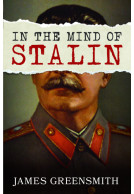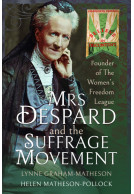Children in Care, 1834–1929 (eBook)
The Lives of Destitute, Orphaned and Deserted Children
Imprint: Pen & Sword History
File Size: 17.7 MB (.epub)
Pages: 224
Illustrations: 32 black and white
ISBN: 9781526728029
Published: 28th July 2020
For centuries, there have been children who have not lived with their birth parents for a range of reasons and have been taken into the care of the state, voluntary societies, other families or employers, temporarily or permanently.
The origins of this book lie in Rosemary Steer’s study of the lives of over 300 children who came into the care of a charity in the village of Dickleburgh in Norfolk started in the 1870s by the Rector’s wife, Mrs Louisa Brandreth. This book extends the study of children in care across the country to cover the main period of the Poor Law Amendment Act (the ‘new poor law’) from 1834 to 1929. Using a wide range of sources including contemporary social commentaries and enquiries, poor law records, charity case files, court records, newspapers, parliamentary enquiries, census returns, parish records and personal accounts, Rosemary Steer details the range of provision and explores the lives of some of these children, before, during and after their time in care.
Research into the care of pauper children has usually been anonymised, but Children in Care includes examples of named children, and through numerous case studies, we hear these children’s stories, sometimes in their own words or those of the adults who had charge of them. It is unlikely that many of these pauper children would feature in any other study, other than individually within the context of family history, so this book also has the benefit of highlighting the lives of some of the least regarded of society.
"There are many examples given of individual children’s cases which are of anecdotal interest..."
Transactions of the Halifax Antiquarian Society, 31(2023)
This is a detailed research written in an interesting way so that it is not “dry facts” and one is not bored to read it. I enjoyed this book and I feel that I learned quite a lot
NetGalley, Edita Pil
The author has researched the subject of children in care in great depth, drawing upon an impressive range of sources and conveying a sense of how desperate and precarious the lives of destitute children in the nineteenth century must have been. Although the book draws mainly upon English experiences, much of it relates to the country-wide plight of impoverished and abandoned youngsters, of whom most of us have examples in our family history.
Glasgow and West of Scotland FHS
"A very interesting and informative read."
Sheila Cave - Doncaster Family History Society
"An uplifting and informative book."
Glamorgan FHS
"I wish I had had this book when I was lecturing in social policy. It gives an extra dimension to the study of the 'New Poor Law' of 1834, which became Public Assistance in 1929."
Edward James, Historical Novels Review
Rosemary Steer’s Children in Care is definitely worth a read for anyone interested in Social History, Workhouse History or similar fields - and has been one of my favourite recent reads.
Heather Nowlan, Family Tree Searchers
A worthy companion on the bookshelves of anyone interested in family and community history and a model for all members' research. Highly recommended.
Family and Community Historical Research Society
Author article Children in Care as featured by
WDYTYA? Magazine, April 2021
If you had an ancestor who was born within the time frame covered in this book and they were described as – destitute, orphaned or deserted, Rosemary Steer’s book will probably enhance your knowledge of what your ancestor encountered at the beginning of their livers.
East Yorkshire Family History Society
Rating: 5 out of 5 stars
NetGalley, C M
Heart wrenching, imagine the struggles the children made, separations from families and siblings. Some 'institutions" were o.k. but the thought was there for care.
The book Children in Care looks at the number of children who have sadly found themselves in positions of needing to be homed in various ways as some often went to workhouses, children’s homes or even emigrated to various parts of the empire. Some you could say were lucky to be fostered or adopted, but I’m sure wasn’t always a happy ending. The book is based upon the work of its author Rosemary Steer who has worked in archives for many years, and she really does have the knowledge. She particularly looks into the 300+ plus children who found their way into Dickleborough village in Norfolk. Steer make use of all kinds of records in order to find out her research and information from, sources such as court records, case files, newspapers, parish records and more.
UK Historian
This book is three things sad, happy and very interesting all in one book. Sad because of some of the conditions and situations these children find themselves in through no fault of their own. Happy because here are people, even back in that time when it did seem most people didn’t like children or believed they should be seen and not heard. But finally this is a very interesting book indeed, the work, effort and research that has gone into this by the author is incredible and I say that as someone who has had to trawl through these types of records before. It is the work of the author, Steer that makes it the success it should be. There are no pictures needed, but there are a few, through the work of the records and the authors telling is what makes this book. I would highly recommend this book to anyone, but in particular I would invite all students who are learning about history, social history and even law to read this book because of its reliance on source material is fantastic which is why rate 5 stars and it will probably make my top ten books of the year.
⭐⭐⭐⭐⭐
Read the full review here
In many respects, this book is an uncomfortable read. However, at a time when we find ourselves in the middle of a global pandemic, with our social activities curtailed, the content serves as reminder of the meaning of real hardship and places our current circumstances into important perspective. In summary, this is a thoroughly well written and researched volume that goes beyond social history to capture detailed personal portraits of children in care.
Chris Broom, Alde Valley Suffolk Family History Group, September 2020
Rating: 5 out of 5 stars
NetGalley, Morris Morgan
This is, without a doubt, one of the most thoroughly researched history books I have ever read. That research makes what could be a depressing work one that also offers hope. I shed tears reading it, usually during the parts about how they ended up in care in the first place, but also found myself marvelling at the people who worked so hard to help the children and families. That’s a narrative about the time period that is seldom told. Highly recommended!
Rating: 5 out of 5 stars
NetGalley, Jim Daniels
A fascinating and well researched account. I certainly will be making sure the library obtains a copy as apart from being an interesting read, it also is a book readers could use as research.
This book is extremely well researched and the writing keeps you glued to it. It tells about how children (and entire families) end up in the care of the government. Most books I have read on this has been dismal with horrendous treatment to the children. This book is so heart lifting and tells stories of how the homes and workhouses over extend themselves helping some of these cases. The stories are real and the writing flows making a book ,that could be a research book, quite enjoyable.
NetGalley, Vonda Svara
Rating: 5 out of 5 stars
NetGalley, Beth Smith
This was a fascinating history of children in care in the late 19th and early 20th centuries. This book recounts the histories of actual named children, so it is a much more personal documentary than mere statistics.
Rating: 5 out of 5 stars
NetGalley, Cath P
This book is well researched and looks at the wide range of reasons why children end up in care. It is unfortunate that those reasons have changed little over the centuries. This book looks in detail some cases of children taken into care. Some had a terrible life others were lucky enough to find people who cared. It was very interesting and informative even for those who are not trying to research ancestor who was in care.
An interesting and well researched book. This gave a real insight into the lives of children in the "care" system before the care system actually existed, before the welfare state and when parents could just upsticks and leave their children to fend for themselves. This is a good social history of one woman's attempt to offer care to children who.would otherwise be abandoned. Heartbreaking in places but also cheery reading what some of the rich were able to do for the poorer members of society.
NetGalley, Pam Chantrell
Rating: 5 out of 5 stars
NetGalley, Sonali Ahir
This book is about the children in care who landed there for different reasons.
It shares a study of more than 300 children who came in care of a charity in Norfolk in the 1870's.
It is a well researched book and gives great insight in these childrens lives in the care system, before, during and after.
It was such a heartwrenching read and made me cry at times.
Rating: 5 out of 5 stars
NetGalley, Carol Keogh
Rosemary Steers' book focuses on the fate of Children in Care 1834-1929, specifically those children who came into the care of Louisa Brandreth and other like minded souls in the village of Dickleburgh in Norfolk . The research which Ms Steer engaged in for this book is inspiring- she is fully deserving of the credit for this informative, fascinating insight into the lives of these children and the people who cared for them. Although most of the research is centred on these particular cases, nevertheless the author provides an exceptional grasp on the national issue surrounding children left to fend for themselves in many cases but also the heartache faced by parents who were in the position of being unable to care for their children. This book is written for anyone who has an interest in the social history of the period as well as students and academics, The language is very accessible to the lay person and I found the narrative flowed well, it is humorous in parts and deeply sad in others. My very grateful thanks to Netgalley and Pen and Sword publishers for an ARC of this book. I highly recommend.
I learned so much for this book about how what we call today the children’ aid society was created. How adoption, fostering, orphanages and even children being sent to other countries emerged. it is still highly debated today whether some of these ways were Beneficial or harmful to the children. The author did a good job of presenting facts and arguments for both sides. Added bonus: seeing the old letters, pictures and applications At the end of the book.it put a note of realism into what was read.
NetGalley, Kamila Bouvier
In her book, Rosemary Steer explores the reality of foster care for children in England and Scotland in the time between 1834-1929, as laws and manner of care changed afterwards rapidly, covering the time Charles Dickens wrote about.
NetGalley, Kim Deinaß
While normally, books of this kind anonymise the children's identities, in this case and through the permission of charities and descendants, she was able to give specific names and telling the children's tales. Why they were in need of care, how and where they were placed, if they went on from the care system or if their children in turn were in need of instutionalised help, too.
In one chapter, the law situation is explored and the chosen timeframe explained, in another, we hear about ways the children left their foster homes for apprenticeship - and one chapter is dedicated to the elegant and cruel solution of just dumping unwanted strays into the colonies, especially Canada and Australia.
Basically, this book told me that my prejudices formed by contemporary novelists and historical fiction are true, but that it was also possible to get lucky and be placed in a caring home with nice and decent people.
Since non fiction arcs are hit and miss, this one was written perfectly, with many footnotes and source material listed. Bleak but very informative. To be recommended if you happen to want more about this topic.
Well researched and cited, this book has enough personal detail to keep it interesting and readable for laypeople.
NetGalley, Tammy Buchli
Such an interesting book. I have read about children in care before in novels.
NetGalley, Alisha Woods
Good information. Makes you quite sad learning of these children.
Good, informative read.
About Rosemary A Steer
Rosemary Steer qualified as an archivist in 1978 and moved to Suffolk in 1985 to set up the Lowestoft Branch of Suffolk Record Office. After a stint as operational manager of the three branches of Suffolk Record Office, she ‘crossed the floor’ into library management, still in Suffolk, during which time she completed an MBA (Public Service) through Henley Management College. She retired from Suffolk County Council in 2011.
Rosemary is now a freelance researcher and lecturer focusing on social and family history. She completed her master’s degree in family and local history at the University of Dundee in 2014, researching the Dickleburgh charity for destitute and workhouse children for her dissertation. She is now a teaching fellow at the University of Dundee on its online Family and Local History postgraduate programme.














